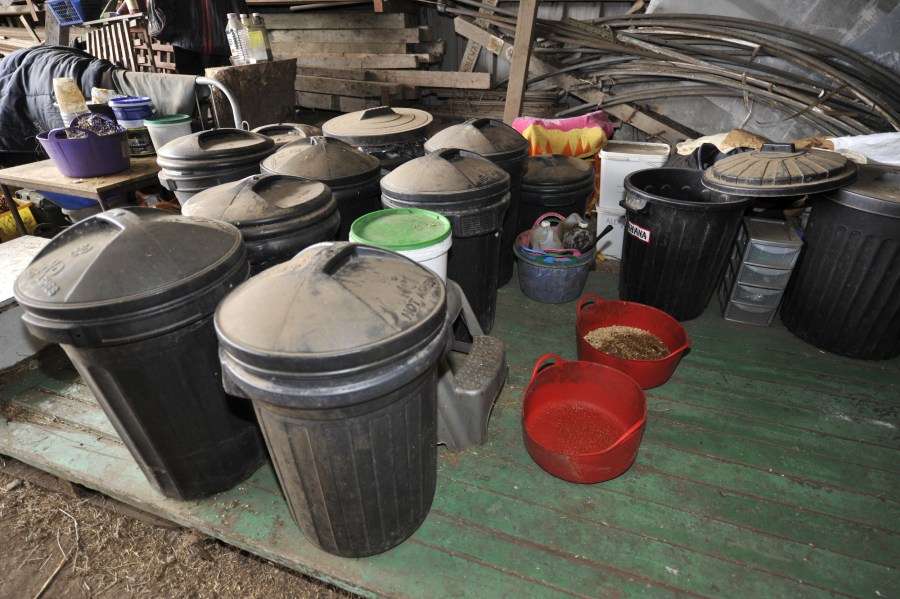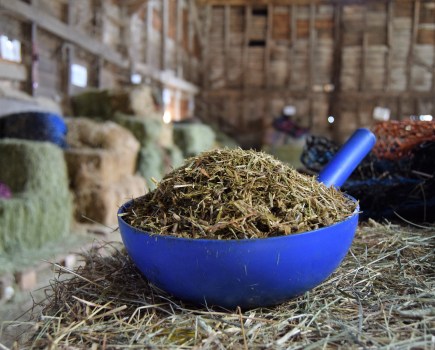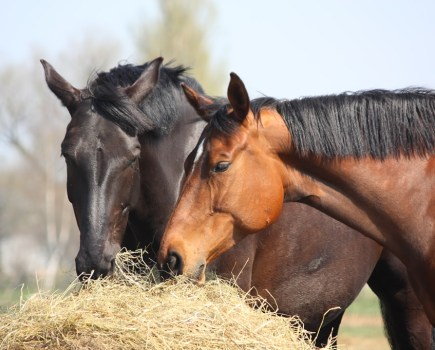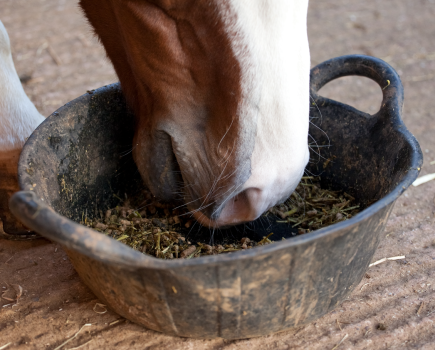From rodent proofing your bins, to storing your feed and organising your utensils, it’s important to keep your feed room in order. So don your sweeping brush and rope in a friend or two, to make sure that your feed room is in tip top condition and free from pesky pests.
Store your sacks sensibly
Most horse feedstuffs will go mouldy or stale if the sack or container is left open to air and dampness, which is why feed manufacturers generally recommend that their products are stored in airtight containers.
To help keep your horse’s feed at its best keep it in an area that’s dry and out of direct sunlight, this will prevent both spoilage from damp and the deterioration of vitamins and oils, i.e. the feed’s nutritional value.
Tough plastic or metal feed bins will also help keep out pests, while stacking unopened bags of feed on pallets will help keep damp and moisture out.
Keep him safe
Another very important reason to store feed securely is to prevent your horse from gorging himself if he makes a great escape into the feed room when you’re not looking. The consequences of him helping himself to his feed can be fatal, particularly if he eats a large amount of dried sugar beet.
Put paid to pests
Feed should be stored in containers to prevent vermin such as rats and mice getting into it. Rats and mice don’t just eat your feed, but can also spread disease and infections to your horse, from their coats and urine so always keep your feed storage area swept clean and tidy to ensure it’s less attractive to mice and rats.
Also consider placing mice and rat traps in your feed room or keeping a stable cat to keep the vermin population down.
Seal any supplements
Take care to tightly reseal any tubs of feed supplements to retain their freshness. Consider tipping them into a metal container so that rats and mice can’t get to them.
Have a tidy up
With your feed safely stored, it’s time to move on to some quick tips to a tidier feed room.
Keep your tools, such as brooms and pitchforks handy and out from under your feet by hanging them on a wall-mounted tool holder.
If you have hay in your feed room, store your bales on wooden pallets to prevent them from getting mouldy from sitting on damp ground. If your feed-storage area is next to a dirt road or has dust issues, keep your hay supply covered.
Thoroughly clean your buckets, scoops and mixing spoons regularly in order to remove any mouldy old feed.
Make sure you check the expiry, sell by, or best before date of your feed before feeding it.









